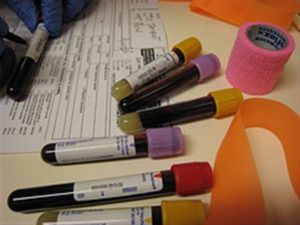
Hartzler, after consuming numerous beers, took a sharp left turn in his jeep with no doors which resulted in the ejection of his passenger. When Hartzler stopped and went back to check on his friend was still laying in the street. They were both hit by another car which killed his friend. His friend was not wearing a seatbelt and was drunk when he was ejected from the Jeep. Hartzler admitted to drinking 4 beers but refused a state blood test. Police later got a warrant and obtained his medical records which revealed a blood alcohol level of 0.19. Hartzler was found not guilty of one count of vehicular homicide and reckless driving but was found guilty of the DUI and vehicular homicide predicated on the DUI charge.
The Court of Appeals found that there was sufficient evidence of causation for a jury to find him guilty of vehicular homicide as witnesses said he was driving recklessly at the time of the accident, smelled of alcohol, seemed relaxed, and stumbled as if he were drunk. The Court found that his act of driving while impaired by alcohol played a substantial part in the death. Next, the Court of Appeals found that while blood tests from the crime lab are subject to a confrontation that hospital blood records are not and a doctor who did not perform the test may testify about them as they are not deemed testimonial. Medical records created for treatment purposes are not testimonial as their primary purpose was in facilitating Hartzler’s medical care. Finally, the Court of Appeals found that when driving while impaired by alcohol plays a substantial factor in a vehicular homicide then the negligence of the person who died is not relevant. Finally, the Judge referring to the person who died in the accident as a victim is not commenting on the evidence.
The Sixth Amendment’s Confrontation Clause provides that, “in all criminal prosecutions, the accused shall enjoy the right . . . to be confronted with the witnesses against him.” Before Crawford v. Washington, 541 US 36 (2004), Ohio v. Roberts, 448 U. S. 56 (1980) was the law and it said that an unavailable witness’s out-of-court statement may be admitted so long as it has adequate indicia of reliability — i. e., falls within a “firmly rooted hearsay exception” or bears “particularized guarantees of trustworthiness.” Crawford, supra, overruled Ohio v. Roberts and held that testimonial statements such as Police Interrogations and Victim Statements require confrontation in the courtroom before the jury or a showing of unavailability and an opportunity for prior cross-examination. Non-testimonial evidence may be governed by state regulation of hearsay rules of evidence.
Hartzler’s opinion allows a jury to hear evidence, untested by the adversary process, based on a mere judicial determination of reliability. This may seem innocuous enough about hospital medical records, but it essentially shifts the burden to Defendant to prove error, unreliability, or lack of accuracy. First, Hospitals test blood serum for alcohol and not whole blood as a DUI is defined under Georgia law. Second, Hospital labs are not forensic labs. They are not testing concerning proof beyond a reasonable doubt but rather a standard of a reasonable degree of medical certainty. Third, Hospital tests are conclusory and whether raw data is stored, retained, or even available for review and inspection is questionable. Fourth, unlike forensic results which are quantitative and focused on a specific numerical value, Hospital results are more qualitative and focus on the mere presence and relative amount for purposes of ruling out symptoms and narrowing a diagnosis. There is no assurance that labs are complying with ISO 17025 in terms of measurement uncertainty or traceability to NIST standards to guarantee accuracy. There is no assurance that labs are using five-point calibrations for the accuracy or what limits of detection are for a given test. Finally, Hospital labs do not store samples nor could they for later verification and retesting. In this sense, confrontation of Hospital results requires confrontation and cross-examination more than government-run criminal forensic labs which are at least subject to Open Records law and other Sunshine Acts. The GBI Crime lab is ASCLD certified and has a certification confirming compliance with ISO 17025 as well as ASCLD/LAB-International Supplemental Requirements for Testing laboratories (2011).
Hartzler also ignores U.S. Supreme Court precedent finding blood tests testimonial. In Bullcoming v. New Mexico, 131 S.Ct. 2705 (2011), the United States Supreme Court found that the formalities attending the “report of blood alcohol analysis” are more than adequate to qualify Caylor’s assertions as a testimonial. On the other hand, it is true that in footnote 2 of Melendez-Diaz v. Massachusetts, 129 S.Ct. 2527 (2009) the Supreme Court said that medical reports created for treatment purposes are not testimonial, the cases that it cited in footnote 2 qualified this statement by saying that defendants must be given a full and fair opportunity to contest the trustworthiness of such records before they are submitted into evidence and that evidence must be “pathologically germane” to the purported use in the criminal trial. These cases were directed at the standard overruled in Ohio v. Roberts, supra, by the Crawford Court of “particularized guarantees of trustworthiness.” The bottom line is that without cross-examination evidence of a blood test result which is the ultimate issue and determinative of guilt in a Per Se DUI or as a predicate to Vehicular Homicide is fundamentally unfair.
Author: George Creal

